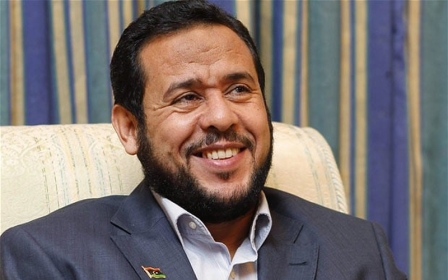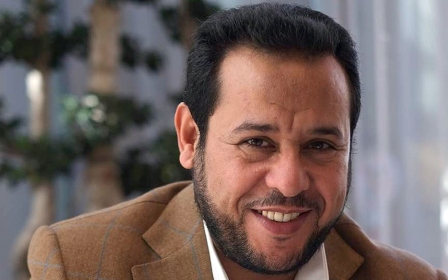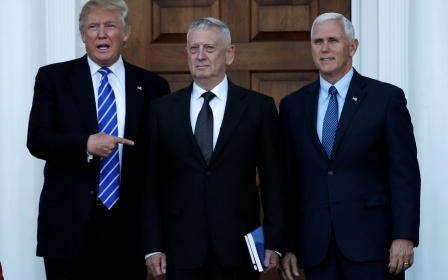Tortured Libyan dissident wins right to sue UK government

Britain’s former foreign secretary, Jack Straw, and a former senior MI6 officer, Mark Allen, on Tuesday suffered a devastating defeat at the hands of Britain’s top judges over the abduction and subsequent torture of Abdel Hakim Belhaj, a prominent opponent of the late Libyan leader Muammar Gaddafi.
Straw and Allen, backed by Britain’s security service, and MI6 lost a four-year battle to prevent Belhaj and his wife, Fatima Bouchar, from suing for liability and from demanding compensation in a British court.
The UK Supreme Court flatly rejected Straw and Allen’s claims that the case should be dismissed, and could not be heard in a British court, on the grounds that agents of the British state and CIA agents, Libyan authorities, and those of other countries were involved in the rendition operation.
Straw, who served as foreign secretary under Tony Blair from 2001 to 2006, and Allen, who was knighted in 2005, relied on the doctrines of so-called “state immunity” and “foreign act of state”.
Belhaj, then the leader of the Libyan Islamic Fighting Group, and his wife were seized in Malaysia and Thailand after a tip-off from MI6. They were flown to Tripoli in a CIA plane. The operation took place in 2004 when Tony Blair, the British prime minister, was enthusiastically befriending the Libyan dictator.
In a unanimous ruling, seven judges threw out the arguments made by Straw, Allen, and Britain’s state agencies on the grounds that the case involved allegations of the most serious abuses, including torture.
“The critical point in my view”, ruled Lord Mance, in the lead judgment, “is the nature and seriousness of the misconduct alleged.” He added: “English law recognises the existence of fundamental rights.”
He quoted Magna Carta, the medieval agreement between King John and English barons that is regarded as being one of the first bulwarks setting out the rights of the individual.
“No free-man shall be taken, or imprisoned, or dispossessed, of his... Liberties… or be outlawed, or exiled, or in any way destroyed… except by the legal judgment of his peers, or by the laws of the land,” Mance quoted in his ruling.
Mance added: “Further, torture has long been regarded as abhorrent by English law… and individuals are unquestionably entitled to be free of deliberate physical mistreatment while in the custody of state authorities.”
He continued: "... in so far as what is alleged amounts to complicity on torture, the United Nations Convention against Torture... obliges states to provide a universal civil remedy in respect of torture wherever committed in the world, at least when (allegedly) committed by or with the connivance of United Kingdom citizens."
READ: Belhaj lawyer: UK government has 'allergy' to the truth
The judges added: “The principle that there is no general defence of state necessity to a claim of wrongdoing by state officials has been established since the 18th century.”
The ruling quoted extracts from a letter sent in 2004 by Allen, then MI6’s most senior counter terrorism officer, to Gaddafi’s foreign intelligence chief, Moussa Koussa.
In the letter, which was discovered among papers at Libya's state intelligence agency after Gaddafi had been toppled from power in 2011, Allen wrote of the Balhaj case: "This was the least we could do for you and for Libya to demonstrate the remarkable relationship we have built over recent years”.
The ruling said that the letter contained “a hint of the underlying reasons why the United Kingdom may have been willing to supply information to Libya about M Belhaj".
Rejecting MI6’s argument that British judges had no role to play in the case, the Supreme Court ruled: “Bearing in mind the nature and seriousness of the infringements of individual fundamental rights involved, this constitutes no basis for a domestic court to abstain or refrain from adjudicating upon the claims.”
The British courts will now be able to hear Belhaj’s case, something Allen, backed by Britain’s security and intelligence establishment, have tried for years to prevent.
Tuesday’s judgment will also be a huge embarrassment for Straw who repeatedly denied, even to parliament, that Britain had any role in any rendition operation. MI6 is now likely to argue that any hearing must be heard in secret.
Cases can be heard in secret under Britain’s Justice and Security Act, voted by parliament after the British government paid out millions of pounds in compensation to avoid the courts taking evidence on British complicity in the rendition of British nationals and residents to Guantanamo Bay.
Andrew Tyrie, the senior Conservative backbencher and chairman of the All-Party Parliamentary Group on Extraordinary Rendition, welcomed the ruling, saying it "takes the public a step closer to the truth about Britain’s role in extraordinary rendition – the programme of kidnap and torture developed during the Bush administration, and facilitated by the UK government."
"The courts have rejected the arguments that could have allowed British officials to break the law with impunity so long as they were working with other countries," he said. "Excuses about embarrassing the UK’s allies can no longer be used to obstruct the job of getting to the truth. The Supreme Court has now, in the strongest terms, condemned the practice of rendition as contrary to fundamental British rights. That is very good news.
"The risk now is that the new laws on secret hearings – in the Justice and Security Act – could nonetheless thwart efforts to get to the truth, and undermine the ability of the courts to demonstrate that justice is being done. It would be bad for British justice if most of this case ends up buried in closed material proceedings."
The human rights group, Reprieve, said: “Today’s ruling comes just days before the inauguration of Donald Trump as President, who promised on the campaign trail to revive the George W Bush-era torture programme, bringing back waterboarding 'and a hell of a lot worse.'"
PETER OBORNE: Libya rendition case has put Britain in the dock over torture
Reprieve lawyer, Cori Crider, said: “In 72 hours, a would-be torturer will take the reins of Earth’s most powerful security state. So this case isn’t ‘just' about history - the stakes couldn’t be higher.
“We enter the Trump era with not a soul held to account for Britain’s past role in rendition. No official has condemned Trump’s torture boasts. Our intelligence agencies may well be pressured to help America torture again.
"The government bought years of delay by wasting hundreds of thousands of pounds on this appeal, when a simple apology would have closed the case. Theresa May should apologise to this family, draw a line in the sand against torture, and restore British honour once and for all."
Martha Spurrier, the director of the civil liberties campaign group Liberty, said: "All Mr Belhaj and his wife have asked for, after suffering the most unimaginable abuse, is for those responsible to face up to what they did and apologise. Instead, our government dragged them through years of needless litigation, trying everything in their power to shut them down at every turn.
"It is seven years since David Cameron promised a full judge-led inquiry into our country's involvement in torture and rendition, and still cover-up and impunity persist. Now that President Trump has one foot in the Oval Office, it's more urgent than ever that our country sends a clear message that there can be no compromise on torture. The British public deserve the truth - and torture victims deserve justice."
The Supreme Court also ruled on other cases involving the detention in Iraq by British troops of Yunus Rahmatullah, a Pakistani national, and Serdar Mohammed, an Afghan national. It ruled that their cases, too, can be heard in British courts.
Rahmatullah won his case on similar grounds to Belhaj. The court ruled that Serdar Mohammed could pursue his case on the grounds that he could have been the victim of arbitrary detention in that he was held simply to extract intelligence rather than for genuine security reasons.
A Ministry of Defence spokesperson said later on Tuesday of the Mohammed ruling: “We have always been clear that our troops were right to detain Serdar Mohammed, a Taliban commander involved in the production of explosive devices on an industrial scale, so we welcome today’s judgment.
"It is vital that our troops have the ability to detain enemy forces when they are engaged in conflict, and today’s judgment is a significant step in clearing up the legal fog that has surrounded this issue. While it does not of itself dispose of all the claims against the MoD by Iraqi and Afghan nationals, it will help the courts bring them to a conclusion in a way which takes proper account of military realities.”
This article is available in French on Middle East Eye French edition.
New MEE newsletter: Jerusalem Dispatch
Sign up to get the latest insights and analysis on Israel-Palestine, alongside Turkey Unpacked and other MEE newsletters
Middle East Eye delivers independent and unrivalled coverage and analysis of the Middle East, North Africa and beyond. To learn more about republishing this content and the associated fees, please fill out this form. More about MEE can be found here.




